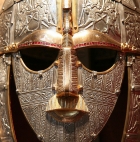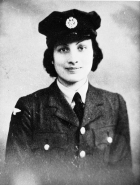Literacy
History is the closest subject to literacy. There are many opportunities between the two subjects for cross- curriculum teaching. Teaching history raises standards in literacy because there are many English based activities that are used in history lessons. History lessons require teachers and children to use their literacy skills in reading, writing and speaking and listening. Read more
-

An integrated literacy and history unit of work
ArticleClick to view -

Dig it: Literacy, ICT, Archaeology and History
ArticleClick to view -

Bringing an information text to life: Pets in the Blitz
ArticleClick to view -

Learning to engage with documents through role play
ArticleClick to view -

Difficult and challenging reading: Genre, text and multi-modal sources
ArticleClick to view -

Using classic fiction to support the study of childhood in Victorian times
ArticleClick to view -

Drama and story telling
ArticleClick to view -

Pride in place: What does historical geographical and social understanding look like?
ArticleClick to view -

Cross Curricular Project on a famous person
ArticleClick to view -

Literacy Time Plus+ My Writing Progress Record
ArticleClick to view -
Case Study: Pictorial Recording
ArticleClick to view -

Thinking through history: Story and developing children's minds
ArticleClick to view -

A classroom museum
ArticleClick to view -

Writing Family Story, Writing History
ArticleClick to view -

Using diaries to stimulate children's understanding of the past
ArticleClick to view -

Working with Historical Picture Books
ArticleClick to view -

Using Nursery Rhymes to develop children's knowledge and understanding of the past
ArticleClick to view -

Exploring the use of historical fiction to support historical learning
ArticleClick to view -

Reading into writing
ArticleClick to view -

Investigating children's awareness of changing values and attitudes through stories written in the past
ArticleClick to view

